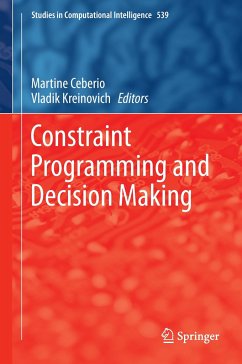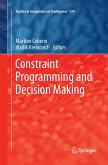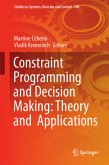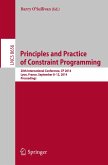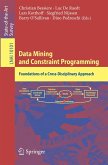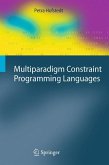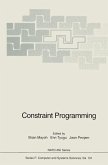In many application areas, it is necessary to make effective decisions under constraints. Several area-specific techniques are known for such decision problems; however, because these techniques are area-specific, it is not easy to apply each technique to other applications areas. Cross-fertilization between different application areas is one of the main objectives of the annual International Workshops on Constraint Programming and Decision Making. Those workshops, held in the US (El Paso, Texas), in Europe (Lyon, France) and in Asia (Novosibirsk, Russia), from 2008 to 2012, have attracted researchers and practitioners from all over the world. This volume presents extended versions of selected papers from those workshops. These papers deal with all stages of decision making under constraints: (1) formulating the problem of multi-criteria decision making in precise terms, (2) determining when the corresponding decision problem is algorithmically solvable; (3) finding the corresponding algorithms and making these algorithms as efficient as possible and (4) taking into account interval, probabilistic and fuzzy uncertainty inherent in the corresponding decision making problems. The resulting application areas include environmental studies (selecting the best location for a meteorological tower), biology (selecting the most probable evolution history of a species), and engineering (designing the best control for a magnetic levitation train).
Bitte wählen Sie Ihr Anliegen aus.
Rechnungen
Retourenschein anfordern
Bestellstatus
Storno

